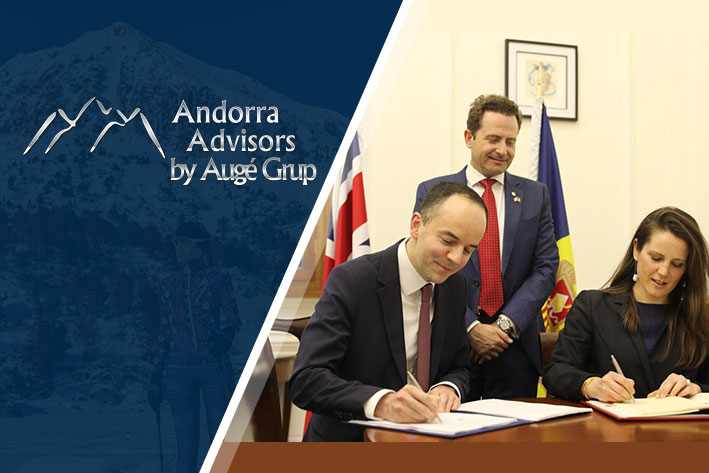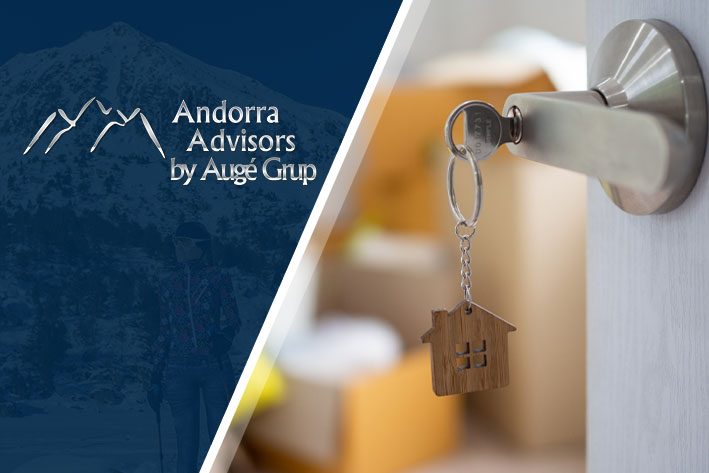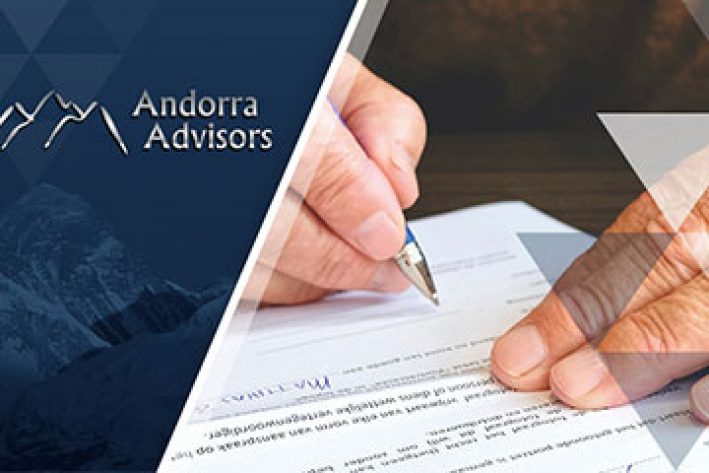14-09-2020
The Law of inheritance and donations is a new legislation that has been in force in Andorra since 2016. This law is responsible for regulating inheritances such as assets and obligations of people at the time of death. Previously for successions, the law of 1989 was used, however, this did not address all areas. Therefore, in 2014 new elements were included in order to clarify situations regarding inheritance.
In this way, the Andorran Law of Successions and Donations establishes rules that apply to spouses and relatives, depending on the succession. With the new law, the widowed spouse becomes the first in the succession ahead of the relatives. This in the event that, when the person dies, he or she does not have children, descendants or grandchildren. Therefore, the spouse is the main one to succeed before parents or siblings.
There are also cases in which the succession is intestate, that is, there is no will or it is discarded due to invalidity. Therefore, the rules and conditions that apply to this type of situation must be taken into account. In the case of Andorra, the reserved property law applies, where relatives receive the goods back.
The Law of inheritance and succession, therefore, covers multiple aspects regarding inheritances, successions and wills. As well as, it explains which laws should be applied in the case of relatives who are in different countries. Through the judgment of the Court of Justice of the European Union, new deals have been established. Allowing both non-residents in EU countries to have freedoms regarding the movement of capital.
Important aspects in the Andorran Succession Law
An important point in matters of succession and inheritance in Andorra is that the inheritance is tax free. Being beneficial for those people who have expatriation in the country, since it avoids problems of rates or maturities. You simply have to take into account the rules and procedures established in the Principality of Andorra.
For cases in which the family members reside in Spain and the deceased in Andorra, there are new regulations. These have allowed that discrimination is no longer generated with those who are not residents of the EU. Therefore, people who do not reside in Andorra can now benefit in the same way from these regional regulations.
This thanks to entities such as the General Directorate of Taxes, who have determined the way to pay inheritance taxes. Addressing the case of residents in Spain who come to inherit assets from a relative who resided in Andorra. Establishing rules and procedures when making a will or receiving inheritance assets from a relative.
Rules and procedures
- A person can transfer their assets in life (inter vivos), through donations or sales.
- Taxes depend on the laws of the country where the deceased resided at the time of death.
- In the absence of a will and default of the successors, the assets are returned to the family.
- The heirs have the right to withdraw their inheritance from the moment the procedures have been formalized.
Types of wills (Expatriates in Andorra)
- Notarial will: it is divided into open or closed, as for the open, the will is written by a notary. While in the closed it is written by the testator and then brought before the notary. Between the two, it is preferable to opt for the first, because it has greater authentication.
- Holographic will: mainly the authentication of Andorran authorities is collected and then it is passed to the notarial protocol. In this testament the will of the notary written by the testator is established, together with the date and place.
Benefits of the Law of Successions and Donations for residents in Andorra
Compared to nearby countries such as Spain and France, the inheritance laws in Andorra have more benefits. In France, taxes must be paid when the property, the heirs and the deceased reside or are in the country. Those who reside in Spain or are abroad must also pay taxes on the inheritance assets they receive. Therefore, if the deceased is in Spain and the heir is in Andorra, they must pay a tax.
For its part, Andorra has benefits both for successions and inheritances, as well as for being a country with advantages. Among which are its tax advantages, having low taxes of 4.5% for services and products. It is also a country that provides a high life expectancy, as well as the highest security for its citizens. In addition, their income taxes are only 10% and their education is totally free in the country.
In this way, people who have the status of resident in the Principality (Andorra) will have more advantages. They will be able to enjoy the benefits that the country offers to those who have chosen to expatriate, such as being tax-free.
Advice on successions and inheritances in Andorra
People who are in a country other than that of the deceased person and whose assets must be transferred. They must take into account the treaties on inheritance and inheritance laws in Andorra and EU countries. As well as the processes that are required when preparing the will in Andorra to establish an inheritance or succession.
On the other hand, it is advisable to consult experts in order to carry out a correct distribution of the inheritance. As well as applying the rules and procedures in cases of both property and company successions in Andorra. Since Andorran law allows defining aspects such as the succession of a family business and inheritance claims. Therefore, it is advisable to establish in the will the law with which the succession or inheritance will be carried out.
Conditions for heirs from other countries
- They must choose in the will the law of their nationality or the country where they reside. As a preventive method, both nationals and foreigners must do it.
- If the law cannot be chosen, the laws of the country where the person died will apply.
In Andorra, donations will also be free of taxes or charges.
Categories : Uncategorized
Tags :
14-09-2020
Latest articles from our blog

The Principality of Andorra and the United Kingdom have reached a new tax agreement with the signing of a Double…

In recent years, access to affordable housing has become a growing challenge for Andorran residents, exacerbated by notable residential growth…

Looking to the future, Andorra is positioned as an epicenter of the passion for skiing, a legacy that dates back…

In an increasingly digitalized world, Andorra joins technological innovation with the launch of DeclarApp by the Ministry of Finance. This…
